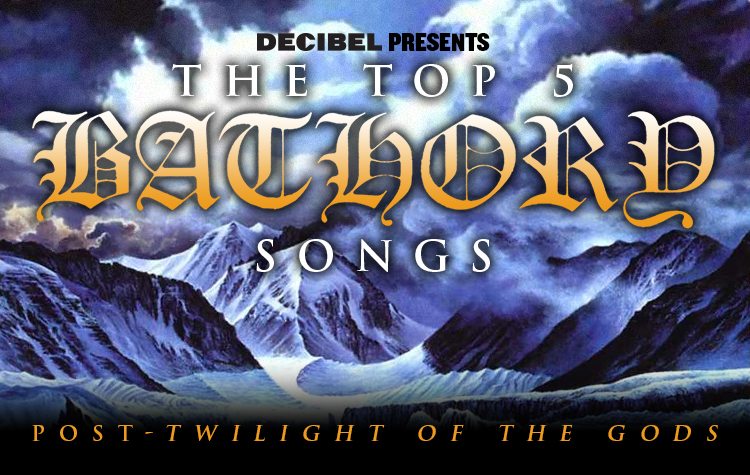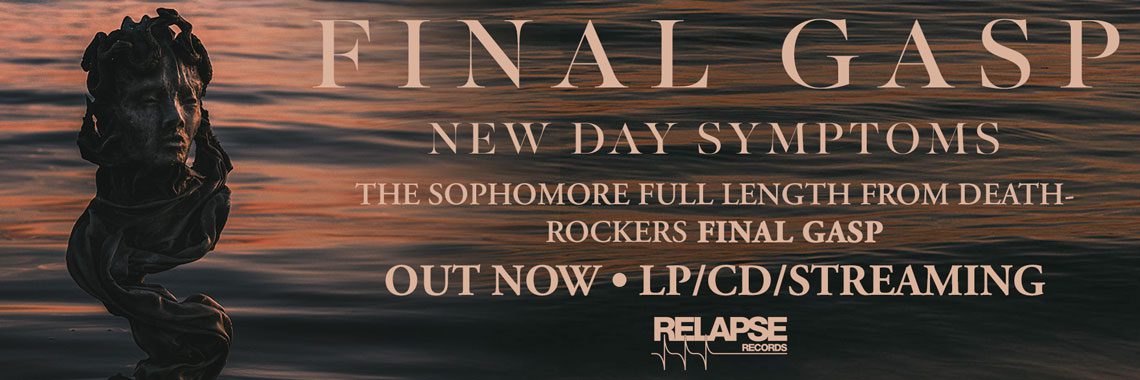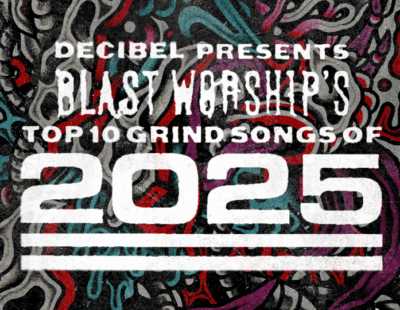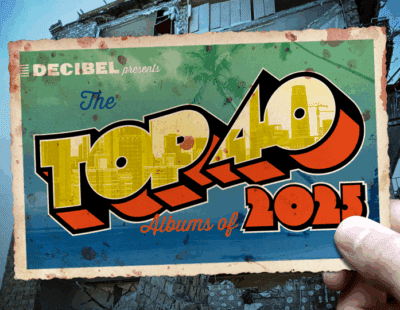
Lists polarize. There, we said it. We’re click-baiting just like the big guns. Other websites lede (yes, lede) with must-click, must-share titles like: “Killswitch Engage Caught On Tape Stealing Soilwork Roadmap” or “Burzum’s Varg Launches Role-Playing Game” (well, that actually happened) or “Ozzy’s Six-Decade Sex Addiction — All The Sordid Details Inside!” Here at Decibel, we care enough to bait you with things like The Top 5 Bathory Songs… After the albums we all claim to care so much about. We know the truest of true own the first pressing of Bathory’s self-titled in its Pentagrammaton form (doesn’t exist) or have 10 signed copies of Blood Fire Death (on vinyl) waiting for the right eBay moment, but Bathory, nay, Quorthon, put out more albums after Twilight of the Gods than he did before his swansong Viking epic (before Nordland I hit the high seas in 2002). For you, our Quorthon-loving readers, we’ve spelunked through Bathory’s ’90s and ’00s works (a brutal task on par with plumbing high school toilets), looking for the next set of jewels to rest our music taste laurels on. There weren’t many things shiny or valuable, truth be told, and one listen to Octagon is a stark reminder that Quorthon did indeed advise Lars Ulrich on the tuning of his St. Anger snare drum. Without suffering more, Decibel presents our Top 5 Bathory Songs (Post-Twilight of the Gods).
5. “War Machine” (Requiem)
Requiem was Quorthon’s in-tandem return to metal while dipping his Swedish tootsies into proverbial Cherry Orchards (OK, cherrybutts, roller coasters, and cunnilingus). Under Quorthon, he produced not one but two full-lengths (also an EP) of embarrassing nature. It stands to reason that he was merely tired of virtue, Valhalla, and valkyries, wanting to write more about real-world experiences–like eating pussy–instead. Either way, Requiem, unfurled like a kick in the dick in 1994, is an ugly bastard. No way to describe it otherwise. There’s far too little Bathory–any era–coursing through its new thrash, power groove veins. Even the logo was changed into a right angle monstrosity. That 90 percent of Requiem is Duracell-charged trash is one thing, but at least it’s not Octagon. Oh, no. There’s one–just one–song on Requiem that’s of redeemable quality. That’s “War Machine”, a song that feels a bit like Prong and Killing Joke riding out a World War III song together. Even so, it’s still Quorthon’s best song spanning both Requiem and Octagon. There are no Viking horns, but there are air raid sirens, which function similarly.
4. “Destroyer of Worlds” (Destroyer of Worlds)
There’s very little to say about Bathory’s post-millenial output, including the first to see light of day after the eternal clocks clicked forward. Most of Destroyer of Worlds is insipid thrash, groove metal, and other quickly written detritus. But the title track, “Destroyer of Worlds”, is something else. The pounding rhythm, the deliberate tempo, the pining solo, and the haunting choral accompaniment are as right as The Return…… is raw and unfuckwithable. It’ll never be known, but I’ve always wondered if this song was written during the Twilight of the Gods era and never used due to its sans-Viking qualities. It’s more modern in its menace. Nevertheless, “Destroyer of Worlds” is easily Bathory’s best song of the trio (Requiem, Octagon, and Destroyer of Worlds) that slipped out of Black Mark like unwanted children.
3. “The Wheel of Sun” (Nordland II)
Nordland II, a continuation of the Nordland I saga, didn’t quite have the urgency and complexity of Nordland I. Nevertheless, it was immediately identified as Bathory. In general, Nordland II was more modern in its riff choices. That said, there weren’t too many complete songs on Nordland II. From “Blooded Shore” and “Death and Resurrection of a Northern Son” to “Sea Wolf and “The Messenger”, Nordland II sounded hurried, as if Big Boss wanted the follow-up to Nordland I to continue the operating cash flow. But the next to last song on Nordland II, “The Wheel of Sun” saves the album from being a Viking Metal reject. Musically, it’s not sophisticated, a revisit to Under the Sign of the Black Mark‘s mid-’80s naïveté–actually, my favorite Bathory album of all time–but there’s an aura to “The Wheel of Sun” that transcends. That solemn lead riff rules. The slow tempo also completes the circle. Certainly, Quorthon had gems in him late in his all-too-short career. “The Wheel of Sun” is right up there with “A Fine Day to Die”, “Enter the Eternal Fire”, and “One Rode to Asa Bay”.
2. “Great Hall Awaits a Fallen Brother” (Nordland I)
Destroyer of Worlds was, in many respects, a continuation of the downward spiral Quorthon found himself in. Requiem, Octagon, and Destroyer of Worlds were a terrible trio, a black mark, if you will, on Bathory’s legacy — not counting Quorthon’s solo albums — as an innovator, a purveyor of musical vision in a genre of mimicry, and an independent voice. To that end, Nordland I was a relative surprise. Quorthon upped the quality quotient all around. Though there are plenty of rotten bones on to be found, “Great Hall Awaits a Fallen Brother” has that “I’ve watched Conan The Barbarian” feel to it. Especially with the choral vocals, the circular rhythm, and the lone lead that follows Quorthon’s vocal melody. Imagine “Wheel of Pain” through Quorthon’s lens, and that pretty much defines “Great Hall Awaits a Fallen Brother”.
1. “The Stallion” (Blood on Ice)
Recorded after Blood Fire Death in 1989 (later released in 1996), Blood on Ice carries many of the characteristics of later Viking Metal albums Hammerheart and Twilight of the Gods. First, Quorthon’s, uh, singing instead of barking and snarling. Second, the sprawling, bucolic vistas in the music recall a time ancient and glory-filled. For “The Stallion”, Quorthon pulled in the more epic aspects of, say, “A Fine Day to Die”, eased out the aggression, eased in the nostalgia, including bluesy solos, to create a picture that matched the lyrical concept. It’s probably the album’s most completely realized song. While Blood on Ice has commendable moments–not very many complete songs–it surely was a reminder that Quorthon had a vision, as much as that vision clashed with expectations that the Swede would properly follow up Blood Fire Death in grandiose style. He didn’t. But then he did.







